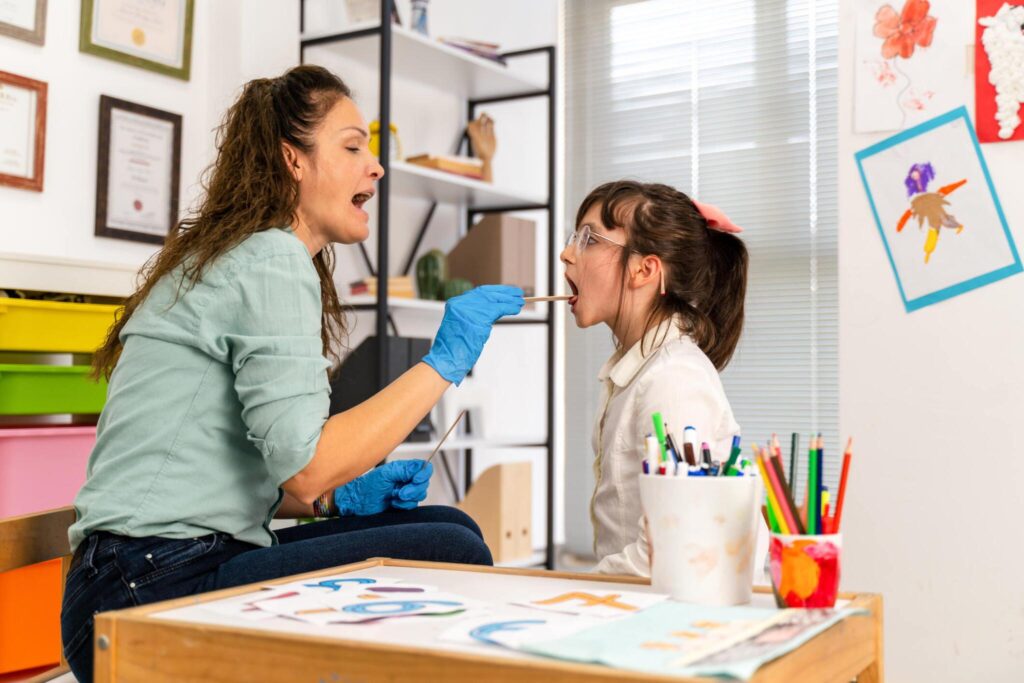Speech Pathologist

Speech Language Pathologist in Brooklyn, NY
Speech-language pathologists (SLPs) are healthcare professionals dedicated to assessing, diagnosing, and treating communication and swallowing disorders across the lifespan. They play a crucial role in helping individuals of all ages overcome challenges related to speech, language, cognition, voice, and swallowing. This essay explores the multifaceted responsibilities of speech-language pathologists in working with both children and geriatric patients, highlighting their impact on enhancing communication and quality of life.
Children
Speech-language pathologists for kids work extensively with children to address a wide range of communication disorders and delays. Early intervention is particularly critical in supporting children’s communication development and mitigating the impact of speech and language difficulties on their overall growth and academic success. SLPs assess children’s speech and language skills, identify areas of need, and develop individualized treatment plans tailored to each child’s unique strengths and challenges.
In working with children, speech-language pathologists address various communication disorders, including articulation disorders, language delays, stuttering, and developmental language disorders such as autism spectrum disorder (ASD). Through a combination of direct therapy, play-based activities, and parent/caregiver education, SLPs help children improve their communication skills, enhance their social interactions, and succeed academically.
For children with articulation disorders, speech-language pathologists utilize techniques such as phonological therapy and articulation drills to improve speech sound production and clarity. Language interventions focus on developing vocabulary, grammar, comprehension, and pragmatic language skills essential for effective communication in social and academic settings. Additionally, SLPs may provide augmentative and alternative communication (AAC) devices or strategies for children with severe communication impairments to facilitate functional communication.
Furthermore, speech-language pathologists play a crucial role in supporting children with developmental disabilities, such as ASD, Down syndrome, and cerebral palsy. Through early intervention programs and collaborative efforts with other professionals, including educators and occupational therapists, SLPs help children with special needs achieve communication milestones, enhance their social interactions, and integrate successfully into educational and community settings.
Geriatric Patients
Speech-language pathologists for elderly/geriatric also work with geriatric patients to address communication and swallowing disorders commonly associated with aging and age-related conditions. As individuals age, they may experience changes in speech, language, cognition, voice, and swallowing function, impacting their ability to communicate effectively and maintain adequate nutrition and hydration.
In geriatric care settings, speech-language pathologists assess older adults’ communication and swallowing abilities, identify impairments or deficits, and develop comprehensive treatment plans to improve function and quality of life. Communication interventions for geriatric patients may include strategies to enhance speech clarity, language comprehension, and cognitive-communication skills.
For older adults with neurodegenerative diseases such as Parkinson’s disease, Alzheimer’s disease, or stroke-related aphasia, speech-language pathologists provide specialized therapy to address communication difficulties and support language maintenance or recovery. Techniques such as memory strategies, compensatory strategies, and communication partner training are utilized to optimize communication effectiveness and promote social engagement.
Moreover, speech-language pathologists play a critical role in assessing and treating dysphagia, or swallowing disorders, in geriatric patients. Dysphagia can lead to complications such as aspiration pneumonia, malnutrition, and dehydration if left untreated. SLPs conduct swallow evaluations, recommend diet modifications, and implement swallowing exercises or strategies to improve swallowing function and reduce the risk of aspiration.
Additionally, speech-language pathologists collaborate with interdisciplinary teams, including physicians, nurses, dietitians, and occupational therapists, and physical therapists to provide holistic care for geriatric patients. By addressing communication and swallowing challenges, SLPs help older adults maintain their independence, participate in social activities, and enjoy a higher quality of life in their later years.
